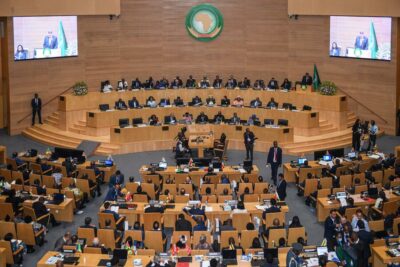In a resounding call to action, Pan-African parliamentarians have urged for the “decolonization” of education systems across the continent. During the Pan-African Parliament (PAP) session held in Addis Ababa, lawmakers emphasized the need to overhaul curricula that remain heavily influenced by colonial legacies and to develop educational frameworks that reflect Africa’s diverse cultures, histories, and contemporary realities.
The call for decolonization comes amid growing recognition that Africa’s educational systems must be reformed to better serve the continent’s socio-economic development goals. Parliamentarians argued that current curricula often fail to resonate with African students and inadequately prepare them to address the unique challenges facing their countries.
“Decolonizing education is essential for empowering our youth and fostering a sense of identity and pride in our rich heritage,” said Chief Fortune Charumbira, President of the Pan-African Parliament. “We must ensure that our education systems reflect our own values, knowledge systems, and aspirations.”
The proposed decolonization agenda includes a comprehensive review and redesign of school and university curricula to incorporate African history, indigenous knowledge, and languages. It also calls for the inclusion of African philosophies and contributions to global civilization, which have historically been marginalized or overlooked.
Dr. Arikana Chihombori-Quao, former African Union Ambassador to the United States, stressed the importance of integrating African perspectives into education. “Our children should learn about the great civilizations of Africa, the innovations of our ancestors, and the resilience of our peoples. Decolonizing education is about reclaiming our narrative and ensuring that future generations are well-grounded in their heritage.”
In addition to curricular reforms, parliamentarians highlighted the need to invest in teacher training and educational resources that support the new content. This includes developing textbooks and learning materials authored by African scholars and educators.
“We must equip our teachers with the knowledge and tools to deliver a decolonized curriculum effectively,” said Hon. Nkodo Dang, a member of the PAP’s Committee on Education, Culture, Tourism, and Human Resources. “This will require substantial investment and collaboration across the continent.”
The decolonization of education is also seen as a strategic move to enhance Africa’s competitiveness in the global economy. By fostering critical thinking, innovation, and a strong sense of cultural identity, a reformed education system can produce leaders and professionals who are better equipped to drive development and address local and global challenges.
Experts believe that decolonizing education will also help to address the brain drain by making education more relevant and engaging to African students. “When our education systems reflect our realities and aspirations, students are more likely to stay and contribute to their communities,” noted Prof. PLO Lumumba, a renowned Kenyan academic and advocate for pan-Africanism.
The session concluded with a unanimous resolution to urge African governments, educational institutions, and civil society to prioritize the decolonization of education. The resolution calls for the establishment of a continental task force to oversee the implementation of these reforms and to promote collaboration among African nations.
As Africa seeks to redefine its place in the world, the decolonization of education is poised to play a pivotal role in this transformation. By embracing educational frameworks that celebrate and leverage Africa’s rich cultural heritage, the continent can build a more inclusive, innovative, and prosperous future.
The Pan-African Parliament’s call to action marks a significant step towards reclaiming and revitalizing Africa’s educational landscape. The journey ahead requires concerted effort and commitment, but the potential rewards — a generation of empowered, knowledgeable, and proud Africans — are immense.
